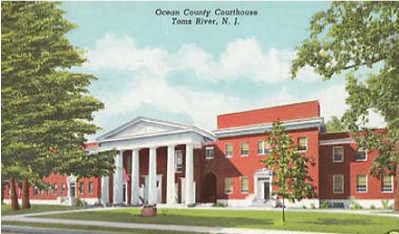The executor or administrator has the task of locating the decedent's assets, filing the necessary tax returns and paying the tax, paying the debts, general costs and administration expenses, and distributing the assets to the beneficiaries.
In New Jersey, the difference between an executor and an administrator is how they come to undertake the responsibility. An executor is appointed under the terms of the last will and testament. An administrator is appointed by the surrogate or by the court, when the decedent does not leave a last will and testament, or did not appoint a executor in the will who is able and willing to serve.
In New Jersey and many other states, both an executor and an administrator can be referred to as a "personal representative".
The personal representative is entitled to retain an attorney to assist with his or her responsibilities. The personal representative is entitled to pay the attorney from the assets of the estate as an administration expense.
Although such an attorney is commonly referred to as the "attorney for the estate", there is a danger with the use of this term. The attorney for the personal representative has a professional duty only to the personal representative, and not to the beneficiaries. There may be some situations which the attorney represents both the personal representative and the beneficiary, but this situation is rare, and maybe the cause of ethical difficulties for the attorney.
There always exist the possibility that the beneficiaries will claim that the personal representative has acted improperly, either by willful conduct or by negligence. If this is the case, then an attorney who is also representing the beneficiaries will have the professional obligation to inform the beneficiaries of any information regarding the acts of the personal representative, and to advise the beneficiaries as to their legal recourses against the personal representative. The attorney will likely find it necessary to withdraw from representing any party in such a situation because of the inherent conflicts.
The attorney who is selected by the personal representative to assist in the administration of the estate is often the same lawyer who prepared the last will and testament, or who otherwise represented the decedent during his or her lifetime. The personal representative is by no means required to do this, however.
The "attorney for the estate" is actually the lawyer for the personal representative. Since a person always has the right to select their own attorney, a personal representative is not required to retain any particular attorney, even if the last will and testament specifically directs the appointment of a particular attorney or law firm.
Commissions. The personal representative is entitled to receive compensation for the services provided. Unless the last will and testament directs otherwise, the personal representative receives "commissions", which are computed as a percentage of both the principal assets of the estate, and a percentage of the income.
In New Jersey, the principal commissions are generally as follows:
The income commissions are 6 percent of all income received during the estate administration.
If there is more than one personal representative, or if there are unusual tasks which the personal representative carries out, the Court may increase the commissions payable to the personal representative.
The fee payable to the attorney for the estate can be computed as a flat fee for the entire administration, as a percentage of the assets, or on an hourly basis.
The beneficiaries have the right to review and challenge all of the administration expenses of the estate, including the attorney's fees. If the amount of the attorney's fees is contested by the beneficiaries, then the Court may allow only a certain amount to be paid out of estate assets, and it is possible that the personal representative could be liable for the balance which he or she otherwise agreed to pay, or did pay, the attorney.

